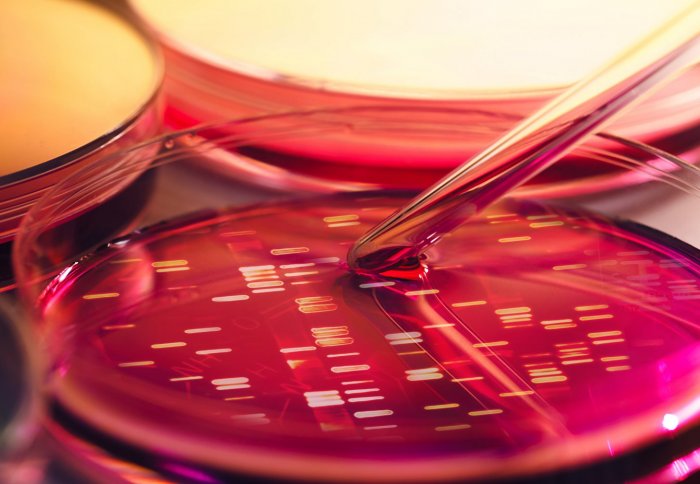Imperial receives £2million to establish new synthetic biology facilities

A new research and training facility at Imperial that will construct DNA at industrial levels has been announced today by the Universities Minister.
Designing, constructing and testing DNA is a crucial element of synthetic biology, an area of science which combines biology and engineering to create new biologically based devices that will help solve a range of different global challenges. These devices are made from harmless cells, such as yeast cells. Manmade yeast genes could then be used to create vaccines or even turn agricultural waste into biofuel.
Imperial has received £2million to establish a ‘DNA Synthesis and Construction Foundry’. Building interchangeable bits of DNA, the building blocks of synthetic biology, is time consuming and expensive. It is hoped that the new Foundry will establish a common framework to build DNA by using an automated robotic system. With a common framework for creating DNA in place, synthetic biologists will be able to scale up the volumes of DNA produced to more easily test their new function.
The new DNA Synthesis and Construction Foundry will streamline and automate the 'writing' of DNA at an industrial scale so that tens of thousands of designed DNA constructions can be built and tested. We ultimately want this to become as straightforward as it might be to design a prototype new part for a car
– Professor Paul Freemont
Department of Life Sciences
David Willetts, Universities and Science Minister, announced the funding for the Foundry at the opening address of the SynBioBeta Conference, an annual synthetic biology conference that links research and industry, which is being held at Imperial College London this week.
Synthetic biology technology is being used to address a range of global challenges such as producing low-carbon fuel and producing new pharmaceuticals. It has been identified by the UK Government as one of the “Eight Great Technologies” in which Great Britain is or can be a world leader.
Professor Paul Freemont, Co-director of Centre for Synthetic biology and Innovation and Innovation and Knowledge Centre said: “One of the biggest problems in synthetic biology is how we can create and assemble enough DNA to test the specific function they have been designed to perform. Standardising the methods for synthesising DNA is crucial if we are going to scale up efforts to design and create this genetic material. The new DNA Synthesis and Construction Foundry will streamline and automate the 'writing' of DNA at an industrial scale so that tens of thousands of designed DNA constructions can be built and tested. We ultimately want this to become as straightforward as it might be to design a prototype new part for a car.”
The establishment of DNA Synthesis and Construction Foundry will complement the Innovation and Knowledge Centre, based at Imperial’s Centre for Synthetic Biology and Innovation (CSynBI), which aims to bridge the gap between academia and industry to speed up developments in new synthetic biology technologies.
Professor Richard Kitney Co-director of Centre for Synthetic biology and Innovation and Innovation and Knowledge Centre said: “The new DNA Synthesis and Construction Foundry will not only scale up DNA synthesis to an industrial level, it will also provide much needed new infrastructure and facilities to collaborate with and train other academics and UK companies interested in synthetic biology.”
Universities and Science Minister David Willetts said: “Synthetic biology is one of the eight great technologies of the future with the potential to underpin growth and create jobs in a low carbon economy. This investment in SynBio will hopefully stimulate even more interest and financial support and reinforce our efforts to develop a leading SynBio community in the UK.”
Professor Melanie Welham, Biotechnology and Biological Sciences Research Council (BBSRC) Executive Director of Science, said: “These new investments will help the UK develop as a leader in synthetic biology and make advances in a wide range of fields, such as agriculture, renewable materials, biofuels and medicines, while at the same time reducing our reliance on finite resources, such as petrochemicals. Nature’s toolbox already produces many useful industrial chemicals and medicines and synthetic biology offers the opportunity to redesign these tools for useful purposes.”
Article supporters
Article text (excluding photos or graphics) © Imperial College London.
Photos and graphics subject to third party copyright used with permission or © Imperial College London.
Reporter
Press Office
Communications and Public Affairs
- Email: press.office@imperial.ac.uk
